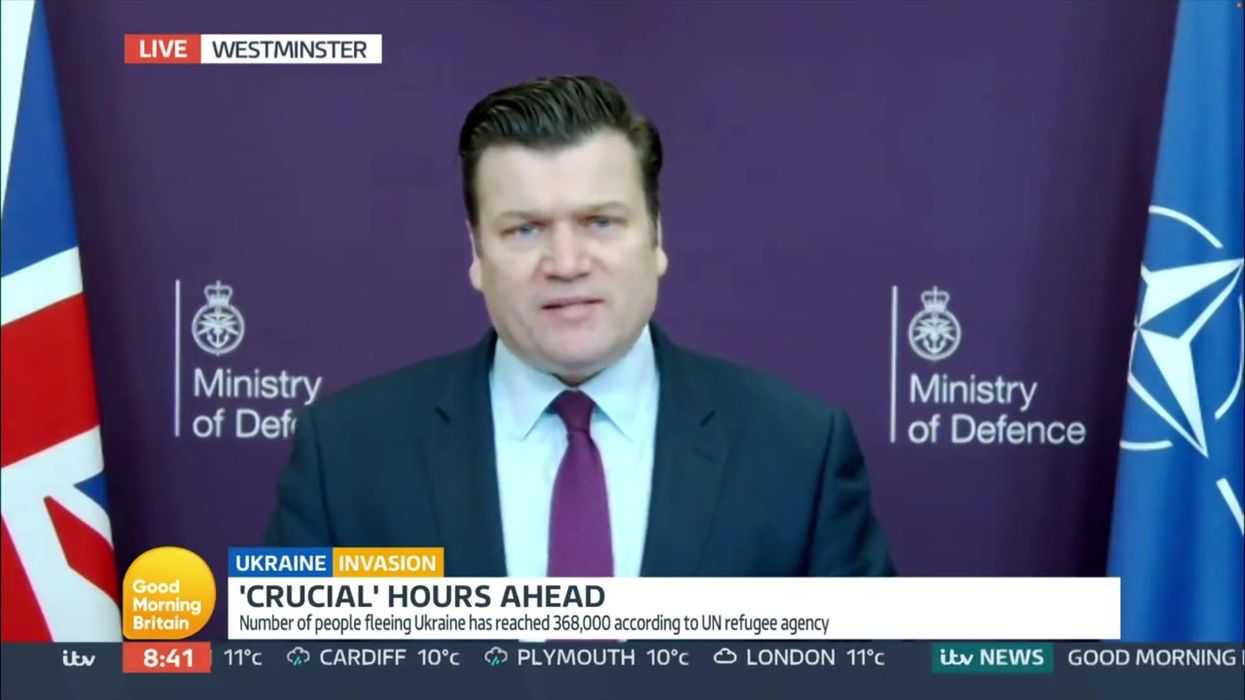Against the backdrop of the ongoing conflict in Ukraine, many are wondering what they can do to help those affected by the Russian invasion.
The attack, launched on February 24, has seen around 368,000 Ukrainians flee the nation to safety.
Defence Secretary Ben Wallace has urged Britons not to travel to Ukraine to join the fighting, and help in other ways, such as donating money through the Ukrainian embassy to be spent on weaponry and aid, or to volunteer with organisations helping refugees.
Sign up to our free Indy100 weekly newsletter
Here are the ways you can help from home:
1. Follow updates from trusted sources
The fact we’re so up to date with what’s happening in Ukraine is largely down to the tireless work of journalists reporting on the ground.
To help them continue this crucial work, follow the news from local sources such as The Kyiv Independent (kyivindependent.com – you can also donate on its website) and The New Voice of Ukraine (english.nv.ua).
Educating yourself on the history and nuances of the crisis from respected sources before speaking about it online will help tackle disinformation. To avoid the spread of misinformation, make sure the news you share is from verified sources.
It's important to read reliable sources. Here are my two favorite outlets in English: @KyivIndependent, @NewVoiceUkraine. Also Ukraine-based journalists: @olgatokariuk, @ChristopherJM, @NikaMelkozerova, @IAPonomarenko (there are many others!) Share info with your contacts! 2/6— Olesya Khromeychuk (@Olesya Khromeychuk) 1645523203
2. Donate to official aid groups
Official groups and charities can help support Ukrainians. These include Nova Ukraine, which delivers aid packages to Ukrainians, Revived Soldiers Ukraine, which funds medical supplies for army hospitals, and the Red Cross. There is also Unicef, Sunflower of Peace, and United Help Ukraine.
This viral Twitter thread also has some good options for charities to support:
If you want to support Ukraine, consider donating to:\nhttps://voices.org.ua/en/\u00a0 - a charity providing psychological support to children with war trauma\nhttps://lifelineukraine.com/en\u00a0 - a suicide prevention line for veterans\nhttps://vostok-sos.org/en/\u00a0 - a charity providing assistance to IDPs— Olga Tokariuk (@Olga Tokariuk) 1645627526
3. Contact your MP
Make your views heard by contacting your parliamentary representative and call on them to do more.
To find your MP, visit the UK Parliament website and type in your postcode or address.
If you\u2019re waking up to news of attack on Ukraine & feel hopeless, instead contact your MP & demand:\nUK to plan for evacuation/refuge for high risk targets.\nRefugee status for democratic, lgbt, human right activists.\nToughest possible sanctions even if it means cost for us.— Blair McDougall (@Blair McDougall) 1645672940
4. Join a peace protest
This might not seem as direct a way to help Ukrainians as, for example, donating money – but it could still have a big impact.
Joining a peace protest (if you are able to do so and feel comfortable being in a crowd) is a public way of showing your support for the people of Ukraine, and putting pressure on those in powerful positions to help those affected.
5. Donate items locally
Donation points are being set up locally across the UK to help collect items for new arrivals moving from Ukraine to other nations.
According to reports, Leeds Polish Catholic Centre in West Yorkshire collected items such as blankets, clothes, toilet rolls, nappies and toothbrushes over the weekend while the White Eagle Club in southwest London also received goods for refugees.
Volunteers are also needed to help sort through the items and pack them up to send them overseas.
Check your local news outlets and social media to see if donation points have been set up in your area.
They are often being established by Ukrainian and Polish community groups and churches in different towns and cities.
Have your say in our news democracy. Click the upvote icon at the top of the page to help raise this article through the indy100 rankings.














